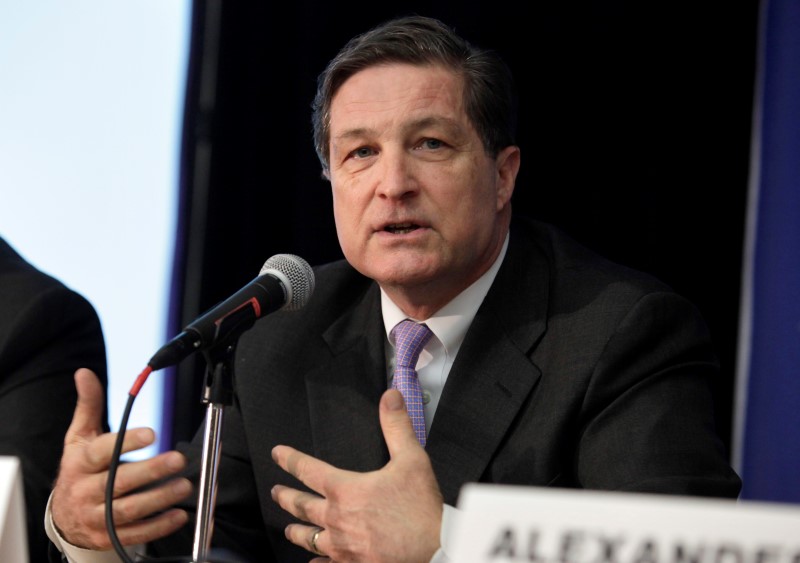By Jason Lange
CHARLESTON, W.V. (Reuters) - Richmond Federal Reserve President Jeffrey Lacker said he would have voted in favor of an interest rate hike at the Fed's September policy meeting had he been able to vote, reflecting the growing pressure on Fed Chair Janet Yellen to raise rates.
The U.S. central bank left interest rates steady at its Sept 20-21 meeting but three of its 10 voting policymakers dissented because they wanted a quarter percentage point increase.
Lacker, one of seven policymakers who currently do not have a vote but who participate in policy discussions, made clear on Tuesday he would have been in the camp gunning for higher rates.
"I would have dissented," Lacker told reporters in Charleston, West Virginia where he gave a speech on the economic outlook.
Lacker, who is next due to vote on policy at the Fed's meetings in 2018, said the Fed should raise rates gradually "but not too gradually" and that the current low level of rates could push inflation above the Fed's 2 percent target in the next few years.
Consumer prices other than energy or food, a measure the Fed watches for gauging inflation trends, rose 1.7 percent in the year through August, up from 1.4 percent at the end of 2015. Lacker argued that borrowing costs might need to rise significantly to keep inflation under control.
The Fed last raised its benchmark federal funds rate in December and Lacker has been pressing in recent months for further hikes.
"Pre-emptive increases in the federal funds rate are likely to play a critical role in maintaining the stability of inflation," Lacker said in his speech.
The Fed's current target range for the rate is between 0.25 percent and 0.5 percent and most policymakers expect to raise the range by a quarter point before the end of 2016. Yellen said last month she also expects one rate increase will be needed this year.
But the Fed is also divided, with several voting members arguing for a more cautious approach to rate increases, while others like Lacker see more urgency in lifting borrowing costs.
Prices for fed funds futures suggest investors see just higher than even odds the Fed will raise rates by the end of the year.
Lacker argued economic history suggests the fed funds rate might need to be higher than 1.5 percent at present. He warned that keeping rates too low could lead to a rise in inflation and aggressive rate hikes, potentially causing a recession.

"This is the basis for the strong case I have articulated for raising our interest rate above its current low level," he said.